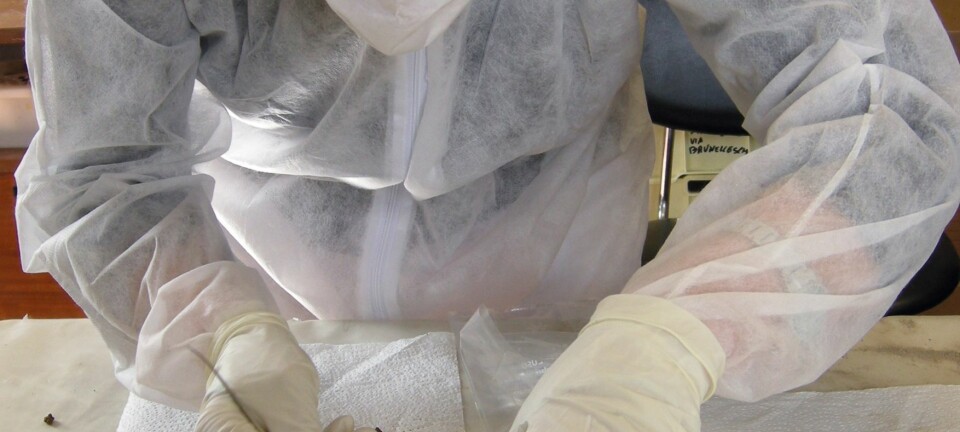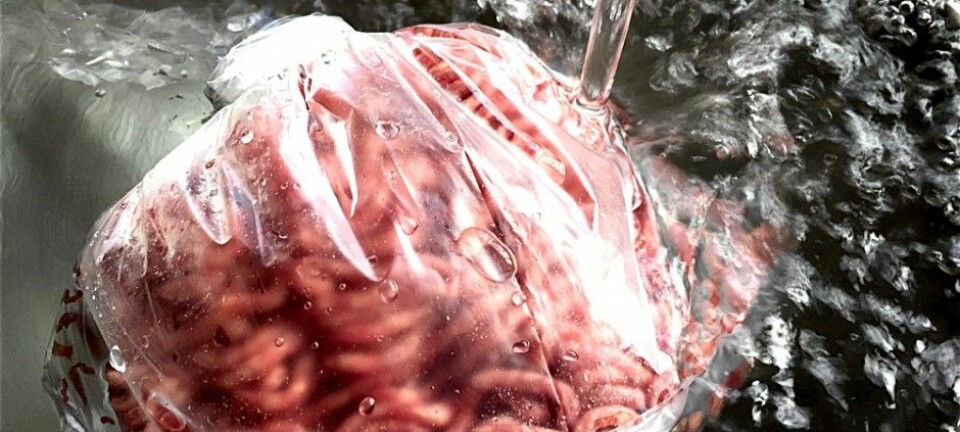
Can microRNA in food harm us? No, say scientists
Scientists express doubt over previous study that reported how genetic material from food can enter the blood stream and affect our health.
The small pieces of genetic material called microRNA found in our food, cannot pass from the gut into our bloodstream and affect our health, say scientists.
This is the conclusion of a large study that questions previous research that led to a scientific debate on the impact of microRNA in food.
In 2012, scientists in China showed that microRNA from rice can enter the bloodstream via the gut and influences the body’s uptake of cholesterol. But the new study contradicts this.
“We’ve discussed back and forth about whether microRNA can come from food into the bloodstream and affect us in one way or another. This is what a few studies have shown and so it was important to settle the matter. We’ve now done that and our research shows that it doesn’t happen, and that the results from the other studies were probably contaminated,” says Claus Heiner Bang-Berthelsen from the National Food Institute, at the Technical University of Denmark.
The study is published in the scientific journal RNA.
Substantial evidence against earlier results
Kenneth Witwer is an expert in molecular and comparative pathobiology from the John Hopkins Medicine, USA, and has studied whether microRNA in food can enter the bloodstream.
He was not involved in the new study, but he has read it and describes the results as both interesting and important, as it clearly identifies what went wrong in the previous studies.
Witwer is also pleased to see such a large analysis of more than 800 other studies, which should rebalance the debate and quash the earlier findings.
“The study comes with substantial evidence against the transfer of microRNA from food into the blood and therefore supports the general consensus that the uptake of microRNA is not a mechanism in the body. In that way, the study agrees with others that have reached the same conclusion—that the theory is wrong—and expands this by looking at microRNA from numerous other organisms,” says Witwer.
Read More: How should we regulate GMOs?
Analysed more than 800 studies
The new study is the first thorough analysis of more than 800 different studies, where scientists from around the world have analysed microRNA in blood and brain tissue samples.
The scientists filtered out all the microRNA from people, so that they only looked at the microRNA from other organisms.
In this way, they can study the connection between food intake and accumulation of foreign microRNA in the blood.
They did not find any microRNA from food.
“The microRNA came from insects and rodents. These are typically organisms that you find in the laboratory and not in food. It suggests that the samples were contaminated and that microRNA wasn’t transferred from food to the bloodstream, which is what previous studies has shown,” says Bang-Berthelsen.
The scientists did not find any evidence of microRNA from fish or poultry in any of the studies that they looked at, which they would have expected if microRNA had been transferred from our food.
Read More: The real food hazards in our kitchens
Wrong to find microRNA in the brain
The brain is protected by a special barrier that does not allow RNA to pass through. So Bang-Berthelsen and his colleagues expected to find more foreign microRNA in the blood compared to the brain, if microRNA was indeed transferred from the gut to the bloodstream.
But in samples containing microRNA, there was equally as much microRNA in blood samples as there were in the brain tissues.
“This suggests that there was contamination,” says Bang-Berthelsen.
Read More: Putting the squeeze on food bacteria
Theory is totally dead
The research group also refute the theory that microRNA from breast milk can be transferred to the baby’s bloodstream and affect their immune system.
One of the studies reviewed by Bang-Berthelsen and his colleagues, fed two groups of pigs either milk or a maize porridge and subsequently found no traces of microRNA in either groups.
For Bang-Berthelsen, the debate is now over.
“Others will probably work on this further, but I think the debate is now dead. We won’t look into it any further, since we can now say with certainty that we’ve studied all available material on the topic and found no evidence that microRNA in our food enters the bloodstream,” he says.
--------------
Read the full story in Danish on Videnskab.dk
Translated by: Catherine Jex










